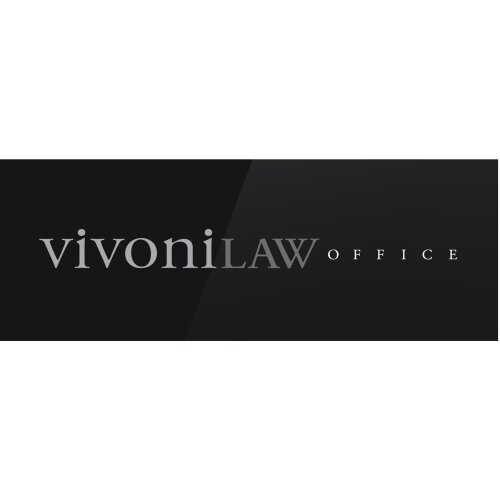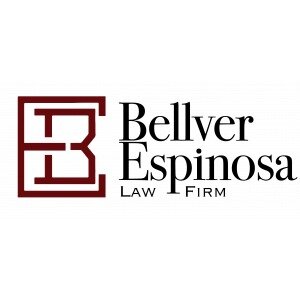Best Renewable & Alternative Energy Lawyers in Puerto Rico
Share your needs with us, get contacted by law firms.
Free. Takes 2 min.
Or refine your search by selecting a city:
List of the best lawyers in Puerto Rico
About Renewable & Alternative Energy Law in Puerto Rico
Puerto Rico is making significant strides in transitioning to renewable and alternative energy sources. Due to the island’s dependence on imported fossil fuels and frequent power outages, renewable energy solutions such as solar, wind, and battery storage have become increasingly important. Renewable & Alternative Energy Law in Puerto Rico governs the development, implementation, and regulation of energy systems that harness clean energy sources. These laws also address incentives, utility interconnection, environmental compliance, and consumer protections. As the territory strives to meet its energy targets, legal frameworks are continuously evolving to stimulate investment in sustainable energy and ensure compliance with local and federal requirements.
Why You May Need a Lawyer
If you are investing in, developing, or using renewable or alternative energy systems in Puerto Rico, legal guidance can help avoid costly mistakes and ensure compliance. Common reasons people seek legal help in this field include:
- Understanding complex permits and regulatory approvals for solar, wind, or other renewables
- Navigating government incentive programs and private sector financing
- Drafting and reviewing contracts for energy system purchase, installation, or maintenance
- Handling disputes with utilities or contractors, including issues related to net metering or interconnection
- Ensuring compliance with environmental and construction regulations
- Addressing land use, zoning, and property rights issues for renewable energy projects
- Protecting intellectual property associated with innovative energy technologies
- Managing liability and insurance concerns unique to energy systems
Local Laws Overview
Puerto Rico’s renewable energy sector is governed by local laws, federal statutes, and regulations specific to the island's unique energy landscape. The most important law is Act 17 of 2019, also known as the Puerto Rico Energy Public Policy Act. This law commits Puerto Rico to achieving 100 percent renewable energy generation by 2050 and sets interim benchmarks for progress. Other key points include:
- Net Metering: Rules that allow individuals and businesses to sell excess solar or wind power back to the grid
- Permitting and Environmental Impact Assessments: Requirements for establishing solar farms or wind projects
- Energy Regulatory Bodies: The Puerto Rico Energy Bureau (PREB) regulates utilities and monitors compliance with energy laws
- Incentives and Tax Credits: Various local and federal programs support renewable energy adoption through financial incentives and grants
- Interconnection Standards: Specific technical and safety requirements for connecting renewable systems to the grid
- Consumer Protections: Rules governing transparency, contract disclosures, and maintenance obligations for energy providers
It is important to understand how changes in public policy, environmental regulations, and utility practices can affect your renewable energy rights and obligations.
Frequently Asked Questions
What types of renewable energy sources are common in Puerto Rico?
The most common sources are solar photovoltaic systems, followed by wind, hydroelectric, and bioenergy. Due to high sunlight levels, residential and commercial solar has seen rapid expansion.
Do I need a permit to install solar panels on my home or business?
Yes, most installations require permits from local municipalities and compliance with fire and building codes. Additional permits may be needed when connecting your system to the grid.
What is net metering, and how does it work in Puerto Rico?
Net metering allows you to receive credits for excess electricity sent to the grid from your renewable system. The credits are applied to your future electric bills, making renewable investments more cost effective.
Are there local incentives for renewable energy projects?
Yes, Puerto Rico and federal agencies offer incentives such as tax credits, grants, and rebate programs to encourage adoption of renewable energy systems for homes and businesses.
How do I ensure my renewable energy contractor is licensed and reputable?
Check that contractors are duly licensed, insured, and have good standing with local regulatory agencies. Review contract terms carefully and request references from past clients.
Can my homeowner association restrict renewable energy installations?
Homeowner associations may impose some restrictions, but under Act 17, unreasonable limitations are generally prohibited. Legal guidance may be necessary if restrictions are contested.
Is battery storage regulated differently than solar or wind?
Battery storage is subject to certain safety and interconnection standards, which may differ from those for generation equipment. Always confirm current regulations before installation.
What agencies regulate renewable energy in Puerto Rico?
The Puerto Rico Energy Bureau (PREB) is the primary regulator. Other relevant agencies include the Puerto Rico Electric Power Authority (PREPA) and municipal permitting offices.
What should I do if I have a dispute with my utility over renewable energy credits?
First, contact the utility to resolve the matter. If unresolved, you may file a complaint with the Puerto Rico Energy Bureau or seek legal assistance.
What is the long-term outlook for renewable energy laws in Puerto Rico?
Laws and policies are evolving quickly as Puerto Rico moves toward its renewable energy goals. Expect continued updates on incentives, compliance requirements, and enforcement procedures.
Additional Resources
- Puesta del Sol: Educational hub and support for solar energy users
- Puerto Rico Energy Bureau (PREB): The independent regulatory body overseeing energy matters
- Puerto Rico Department of Economic Development and Commerce (DDEC): Manages economic incentives, grants, and investment support
- Office of Permit Management (OGPe): Centralized permitting for renewable energy projects
- U.S. Department of Energy - Office of Energy Efficiency and Renewable Energy: Information on federal programs and incentives
- Puerto Rico Electric Power Authority (PREPA): Utility policies and grid interconnection standards
- Nonprofits and advocacy groups like Resilient Power Puerto Rico and Solar United Neighbors
Next Steps
If you are considering a renewable or alternative energy project, or have encountered legal issues, it is wise to consult with a lawyer experienced in Puerto Rico’s energy laws. An attorney can clarify your rights, guide you through permitting and compliance, draft or review contracts, and represent you in disputes. Start by gathering all documentation related to your project, including contracts, permits, and correspondence with installers or agencies. Schedule a consultation with a qualified attorney to discuss your objectives and concerns. Staying proactive and informed are key to protecting your interests and achieving success in Puerto Rico’s rapidly changing renewable energy landscape.
Lawzana helps you find the best lawyers and law firms in Puerto Rico through a curated and pre-screened list of qualified legal professionals. Our platform offers rankings and detailed profiles of attorneys and law firms, allowing you to compare based on practice areas, including Renewable & Alternative Energy, experience, and client feedback.
Each profile includes a description of the firm's areas of practice, client reviews, team members and partners, year of establishment, spoken languages, office locations, contact information, social media presence, and any published articles or resources. Most firms on our platform speak English and are experienced in both local and international legal matters.
Get a quote from top-rated law firms in Puerto Rico — quickly, securely, and without unnecessary hassle.
Disclaimer:
The information provided on this page is for general informational purposes only and does not constitute legal advice. While we strive to ensure the accuracy and relevance of the content, legal information may change over time, and interpretations of the law can vary. You should always consult with a qualified legal professional for advice specific to your situation.
We disclaim all liability for actions taken or not taken based on the content of this page. If you believe any information is incorrect or outdated, please contact us, and we will review and update it where appropriate.
Browse renewable & alternative energy law firms by city in Puerto Rico
Refine your search by selecting a city.












